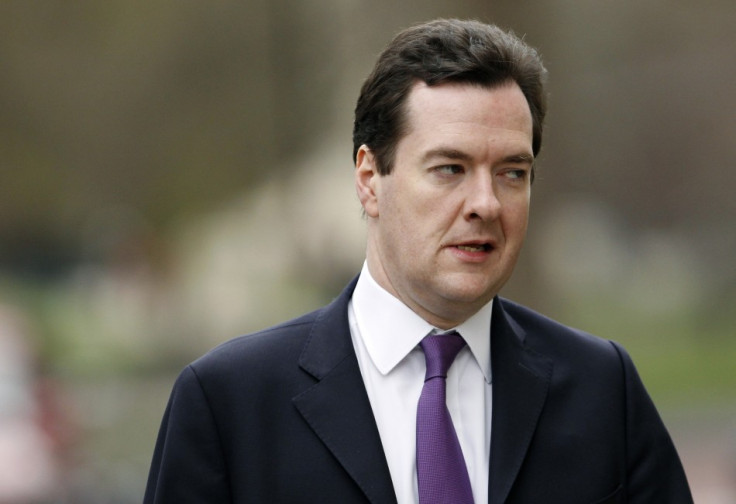UK Economy Contracts Faster as ONS Revises Q4 GDP Data Down

Britain's economy contracted faster than though in the last quarter of 2011, as the Office for National Statistics (ONS) revises its figure down to a -0.4 percent contraction.
The ONS held its first quarter estimate of a -0.3 percent contraction in UK economic output, as the country slumped back into recession for the second time for four years.
"With today's data showing a deeper return to recession than previously thought and the global backdrop deteriorating, the case for using additional monetary policy tools to boost growth is strengthened," Rob Harbron, economist at the Centre for Economics and Business Research, said.
Chancellor George Osborne's economy woes look set to extend into their third quarter, after the Bank of England predicted that the Queen's Diamond Jubilee would represent and overall 0.5 percent drag on GDP.
A collapse in output from the construction sector of -4.9 percent is largely to blame for the overall contraction in the first quarter of the year. Industrial output fell by 0.5 percent, while the service sector, which represents the most of UK GDP at around three quarters, grew by just 0.2 percent.
Real household disposable income has dropped 0.9 percent, while the Bank of England's record-low interest rate of 0.5 percent has discouraged household saving, with a ratio of just 6.4 percent of income on average going into savings.
During this period total government spending rose by 1.9 percent, as tax receipts fell.
Both the Office for Budget Responsibility and the UK's central bank have forecast the economy to grow by just 0.8 percent in 2012.
In the absence of fiscal stimulus from the government, the Bank of England has announced two new credit easing schemes to get banks lending at affordable rates to businesses and consumers, on top of its £325bn quantitative easing programme, which looks set to get an additional £50bn in coming months.
Under the two new schemes, which will be worth a combined £100bn, the Bank will offer cheaper than the market-rate loans to banks, in the hope that this will absorb some of the lending risk and offer a financial incentive to banks to increasing their lending to the wider economy.
In turn this should provide businesses with the investment capital they need to expand and hire more employees, giving a boost to the economy.
It is also meant to reassure banks, hesitant to lend and take on risks with uncertainty from the eurozone crisis threateningly looming overhead, that there are buffers in the UK to protect them from any catastrophic event in the global economy.
However data from BDRC Continental, which conducts business research, showed that the appetite for finance from small and medium sized-enterprises is largely being met, raising doubts over the impact the Bank's credit easing will have.
Mervyn King, governor of the Bank of England, admitted to MPs that there are "no guarantees" that his plans will work.
© Copyright IBTimes 2024. All rights reserved.






